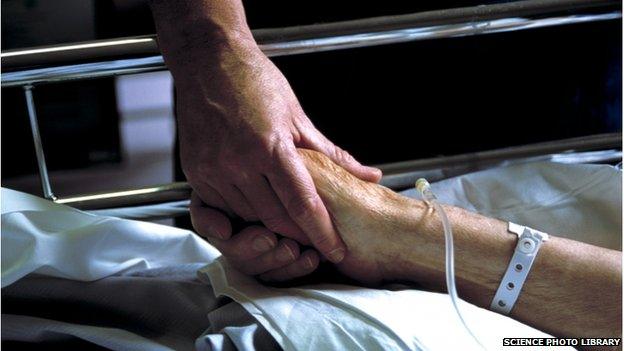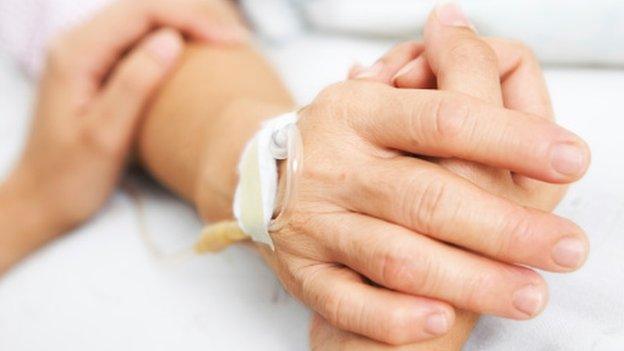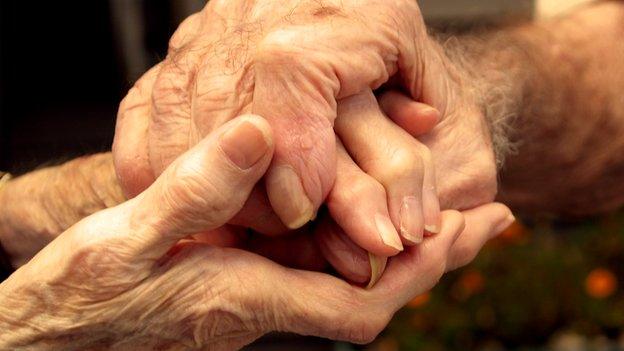Assisted suicide review granted by High Court judges
- Published

Disability rights campaigners who say assisted suicide policy in England and Wales is too "liberal" have won permission to bring a legal challenge.
Director of public prosecutions Alison Saunders last year clarified assisted suicide guidelines, external, making prosecutions of health professionals less likely.
At London's High Court, Nikki and Merv Kenward argued she had "changed" policy, making it more "liberal".
Judges permitted a judicial review of Ms Saunders' decision.
In England and Wales, the Suicide Act 1961 makes it an offence to encourage or assist a suicide or a suicide attempt. But the Director of public prosecutions (DPP) has discretion over any prosecution according to the published policy.
Mr and Mrs Kenward argued that the significance and legality of the clarifications should be properly assessed.
John McGuinness QC had argued on behalf of the DPP that there was no legal basis for the challenge.
But Lord Justice Bean, sitting with Mr Justice Hickinbottom, said permission was justified by the "importance" of the subject.
'The norm'
Speaking outside court, Mrs Kenward, from Aston on Clun in Shropshire, welcomed the decision.
"I am delighted and shocked - I didn't think it was going to happen," she said.
Mrs Kenward, a former theatre manager who is confined by illness to a wheelchair, and her husband campaign against euthanasia and assisted suicide through the Distant Voices campaign group.
In 1990 at the age of 37, Mrs Kenward was stuck down by Guillain-Barre syndrome, a rare and serious condition of the peripheral nervous system.
She was initially fully paralysed for more than five months and has been in a wheelchair since.
Mr and Mrs Kenward want the references making prosecution of healthcare professionals in assisted suicide cases "less likely" removed from the DPP's policy.
"If it is not removed, and this becomes the law it will change how we view death," Mrs Kenward added.
"It will create a new mean whereby euthanasia is an accepted form of behaviour. It will start to become the norm and it will be considered a kindness for you not to be there."
- Published17 July 2014

- Published10 September 2015
